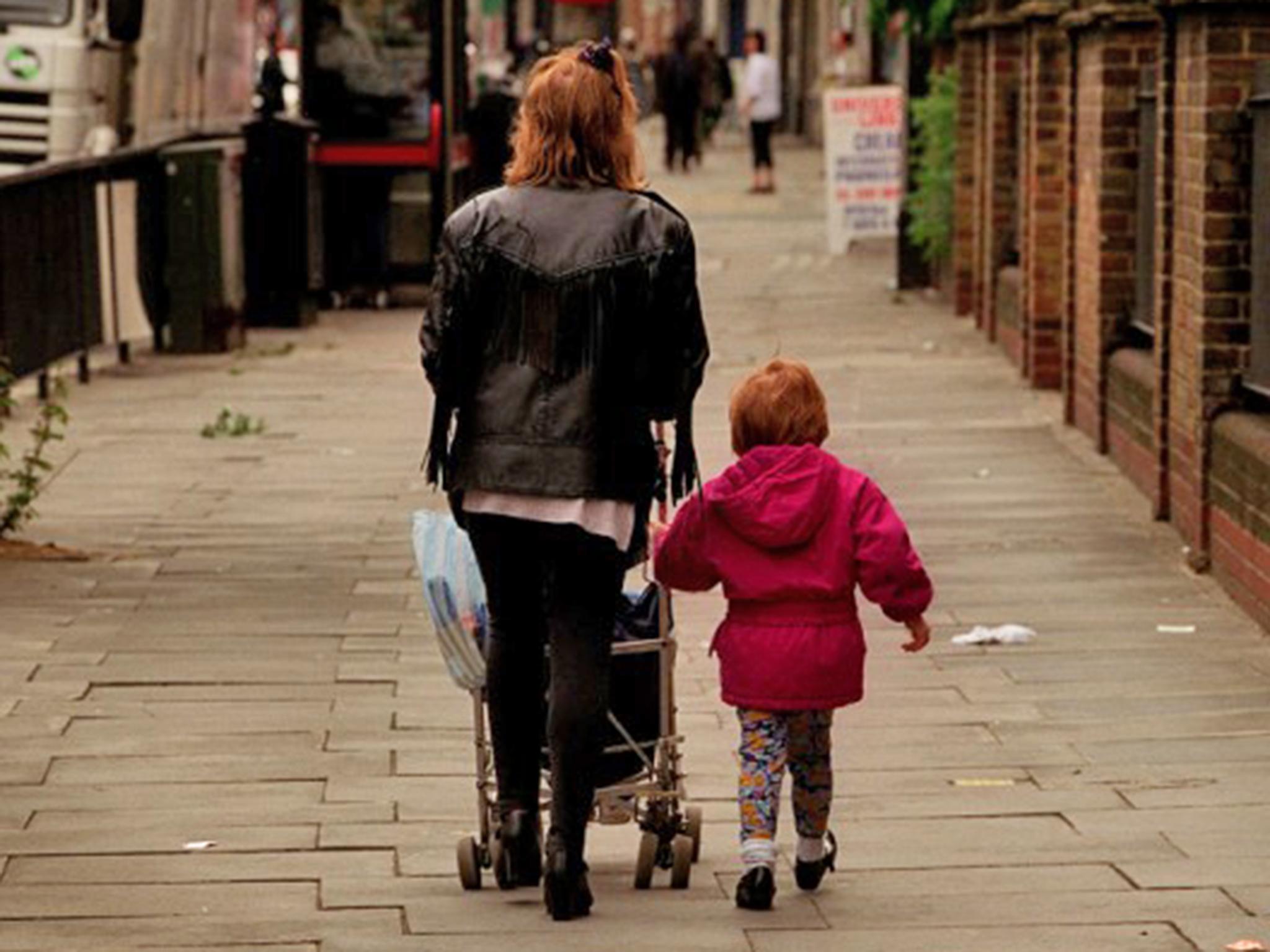No bill is going to help women fleeing domestic violence unless it does something about welfare cuts
We know that the benefit cap, coupled with the two-child tax credit limit implemented earlier this year, will result in many more women and their children being trapped in abusive homes

Your support helps us to tell the story
This election is still a dead heat, according to most polls. In a fight with such wafer-thin margins, we need reporters on the ground talking to the people Trump and Harris are courting. Your support allows us to keep sending journalists to the story.
The Independent is trusted by 27 million Americans from across the entire political spectrum every month. Unlike many other quality news outlets, we choose not to lock you out of our reporting and analysis with paywalls. But quality journalism must still be paid for.
Help us keep bring these critical stories to light. Your support makes all the difference.
When Sabrina* finally escaped her abusive relationship, fleeing to a refuge with her two young children, it felt like they had gone on a holiday. For the first time in months, her children were smiling and laughing, and she felt the weight lift from her shoulders. This is what freedom from fear, something we all take for granted, feels like.
But while living in refuge, Sabrina discovered that she was pregnant. She went to the hospital for her first scan, with one of the support workers from the refuge, where it was confirmed that, yes, she was pregnant and she was given a date for when her third baby’s arrival was expected. Sabrina wept at the news.
These were not tears of joy from an expecting mother, but tears of anxiety and worry about how she was going to cope financially when she eventually moved out of the refuge – and when the benefit cap and two-child tax credit limit would kick in. She knew that she would struggle to bring a new baby into the world as a single parent of soon-to-be three. As soon as she returned to the refuge, she packed her family’s bag with the few belongings they had and returned to the home she shared with her abuser, utterly defeated.
We know financial concerns are one of the major obstacles for women wanting to leave abusive relationships, as they fear they will not be able to keep a roof over their children’s heads and afford basic things like food, school uniforms and toiletries. Sabrina is just one survivor who has been trapped in an abusive relationship because she was not able to access sufficient welfare support to help her rebuild her life and bring up her children as a single parent. But we know that the benefit cap, coupled with the two-child tax credit limit implemented earlier this year, will result in many more women and their children being trapped in abusive homes.
When survivors flee domestic abuse, they often leave with nothing but the clothes on their back and they often have to leave not only their home but also the area that they live in and their job for fear of being hunted down by the perpetrator. On average, two women a week in England and Wales are killed by a partner or ex-partner, with 76 per cent of women being killed after a relationship has ended within one year of separation. A woman’s fear about being hunted down by the perpetrator is a very real and very serious threat.
This means that women are often left destitute by domestic abuse with no way to support themselves or their children. They often have to leave everything behind – their home, their job, their support networks, which are essential when it comes to childcare support for single working parents – and start over again with nothing. Women trying to escape abusive relationships are therefore left with a stark choice. Leave, and face increasing hardship, poverty and even homelessness. Or stay.
The Government wants to transform the national approach to tackling domestic abuse through its landmark Domestic Violence and Abuse Bill, and make victims safe in the knowledge that the state “will do everything it can to both support them and their children”. We support the Government’s ambition but know that the bill’s potential will be completely undermined by the impact of its welfare reforms which disproportionately affect survivors and their children, and add additional financial barriers to them escaping abuse in the first place.
We urge the Government to listen to survivors like Sabrina and recognise the damage that their welfare reforms are having on these women and their children. We want to see a Domestic Violence and Abuse Bill with real teeth, a bill that encompasses and goes beyond changes to the criminal justice system because if women cannot escape abuse in the first place, an improved criminal justice response will be worthless. We want to see the Government make welfare reforms that will really transform the lives of survivors of domestic abuse, empowering women to escape and recover in safety and in dignity.
*No real names have been used in this piece.
Katie Ghose is the chief executive of Women’s Aid. You can call the Domestic Violence Helpline for free on 0808 2000 247
Join our commenting forum
Join thought-provoking conversations, follow other Independent readers and see their replies
Comments